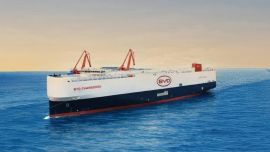A month into his presidency, Alberto Fernández has embarked on an ambitious and risky juggling act in a bid to drag Argentina out of its worst economic crisis in almost 20 years and avoid another default.
As the country grapples with 40 percent poverty, inflation that has surpassed 50 percent, and with hundreds of billions of dollars of debt, the centre-left Peronist leader has already announced a package of emergency measures to try to kick-start the economy.
Fernández's plan involves a six-month freeze on utilities bills, and tax hikes on foreign currency purchases, car sales and agricultural exports – one of the few sectors experiencing growth.
The former Cabinet chief, who many have described as a skilled "tightrope walker," has managed to bring unions and businesses around the same table – asking the former to be reasonable with their salary demands, and the latter to keep prices down and stimulate investment.
This implies a "policy of keeping both sides sweet," said political analyst Enrique Zuleta.
It allows Fernández to "gain time, generate a certain positive response from the most socially disadvantaged, but in the medium term it's very difficult to sustain."
However, Zuleta said predictions the economy would collapse if Fernández were to replace his market-friendly predecessor, Mauricio Macri, have proved wide of the mark.
"None of the almost apocalyptical prophecies have happened: that a change of this magnitude in diametrically opposed ideologies... would bring high market uncertainty and volatility."
But this is merely "déjà vu" according to consultants Capital Economics, who advise the government to provide a clearer plan of how it intends to pay its debts.
'A painful measure'
Fernández has maintained the monthly US$200 limit of buying foreign currency imposed by Macri last August, in a bid to arrest the peso slide that begun 18 months ago and was the catalyst for the current crisis.
Argentines who can afford to, keep their savings in dollars, often outside the country. Preventing the damaging dollar flight from getting worse is crucial to protecting the peso and maintaining Argentina's ability to pay its debts.
For Daniel, a pizza restaurant owner, it's a "painful" measure.
"Who's going to bring dollars here if we can't withdraw them?" he asked.
According to analyst Carlos Fara, "the majority of the middle classes are unhappy" with it. But he says "a default would be a disaster for Argentina."
It has the largest external debt in Latin America – US$335 billion, which amounts to just over 90 percent of GDP. That includes the US$44 billion it owes the International Monetary Fund. Renegotiating that debt is one of the government's priorities, as is managing the hefty maturities it faces from sovereign bonds in the coming months.
And this in a country whose central bank reserves – US$45 billion – are depleting.
Last month, the government unilaterally postponed until August paying some nine billion dollars in maturities, which resulted in the country's debt being downgraded by rating agencies Fitch and S&P.
When it comes to foreign policy, Fernández has proved he won't always tow the party line.
While he has offered refuge to left-wing ally Evo Morales following his resignation as president of Bolivia, he was quick to criticise Venezuela's Nicolás Maduro after government troops interfered in the election of a new parliament speaker on Sunday.
It was a position that surprised the government of US President Donald Trump.
Even so, regionally, Fara expects that "we'll see Alberto move further to the left, because that foreign policy will serve him to symbolically satisfy the most radical sectors" of his Frente de Todos coalition.
related news
by by Yemeli Ortega & María Lorente, AFP


























Comments